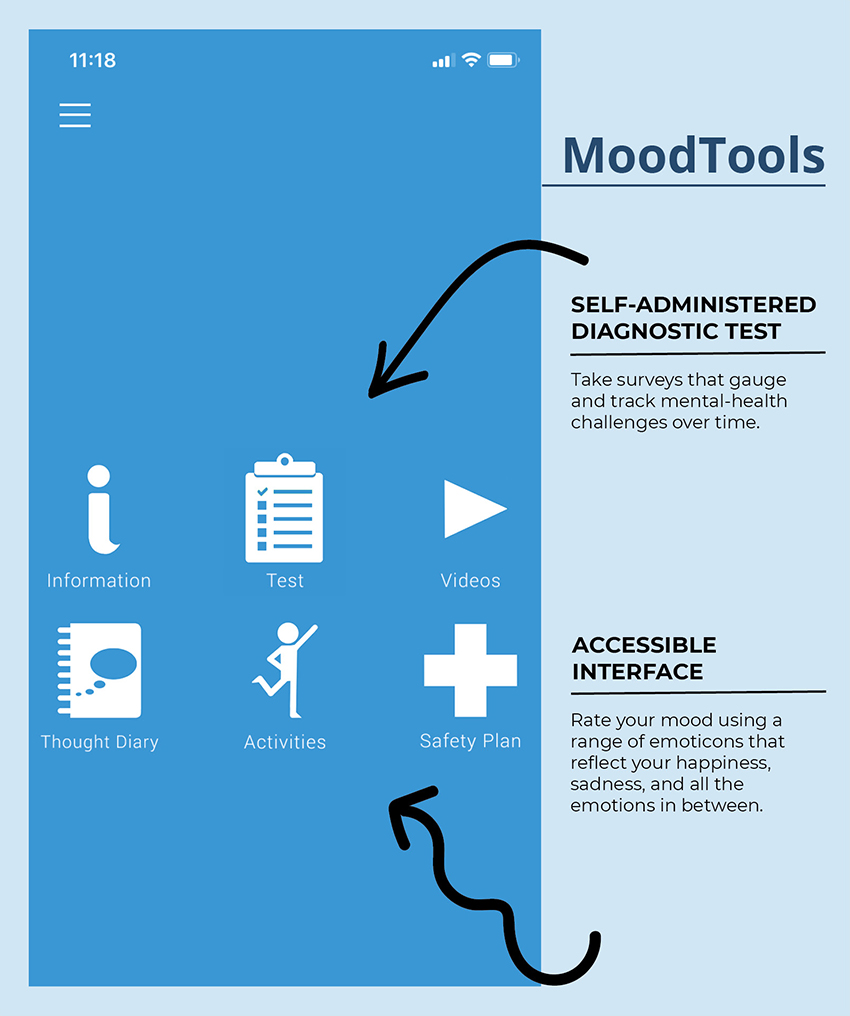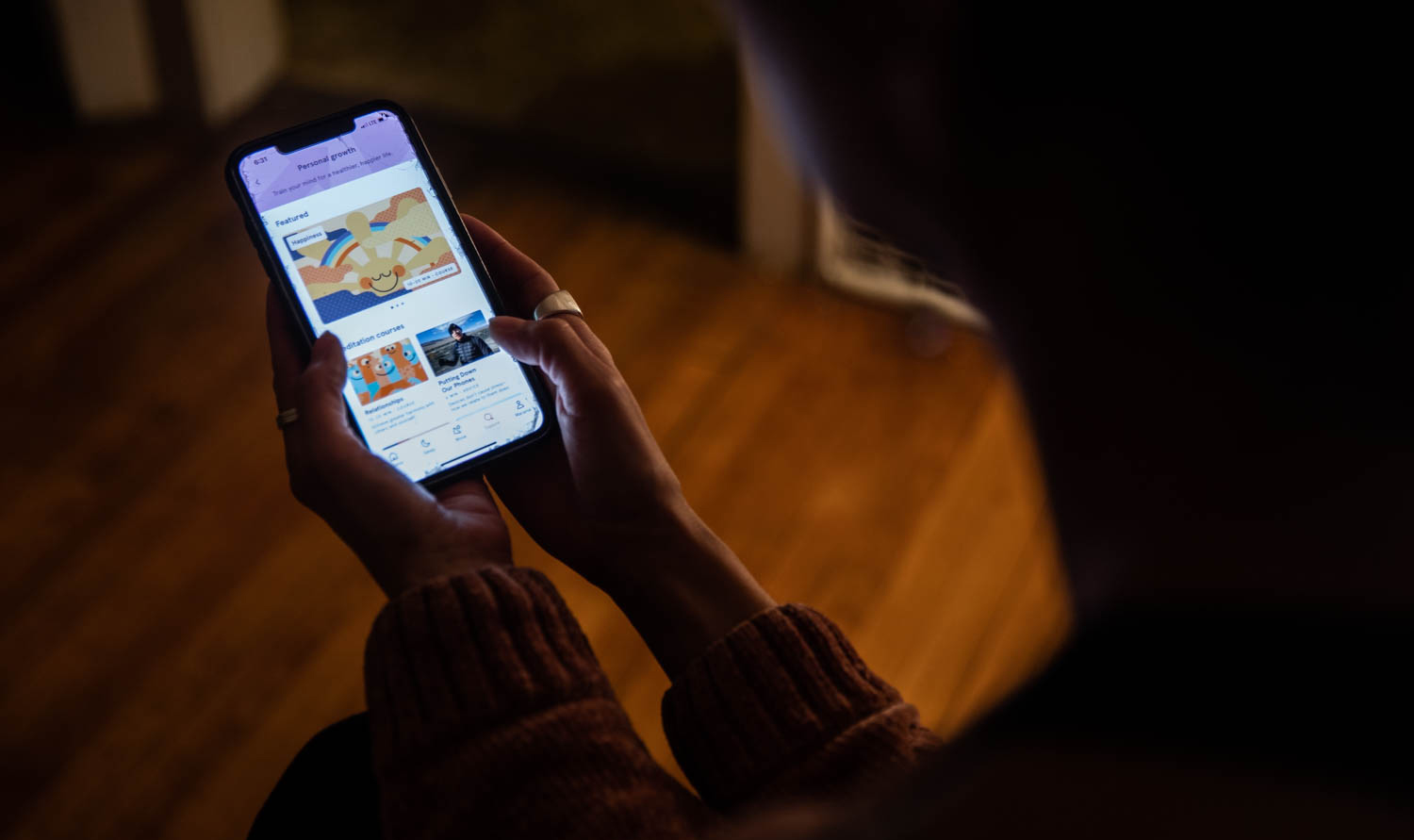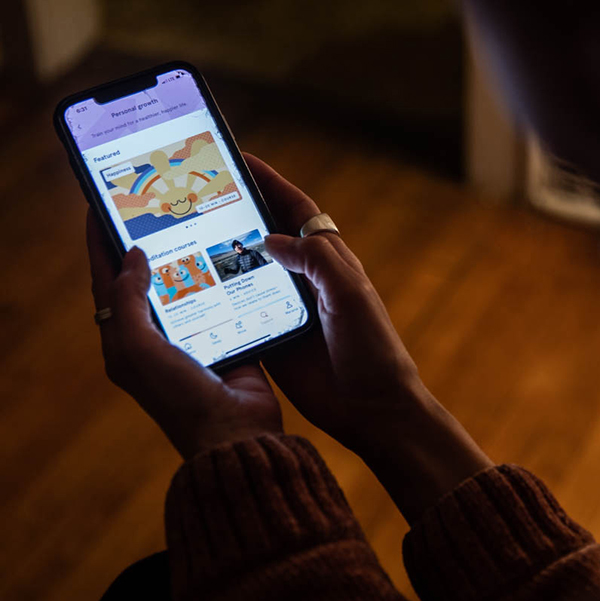Following the instructions of the calm, soothing British voice, you take a deep breath and hold it for five seconds. You close your eyes as his gentle voice tells you to focus on your breathing. The instructor isn’t leading a yoga class. He’s speaking to you from a smartphone app designed for meditation.
This is Headspace. One of the more than 10,000 mobile apps designed to help with stress and other mental-health issues. “Using a mental-health app can be a good preventive measure to maintain positive mental health, bring awareness to any changes in your mental health, and practice good self-care,” says Alex Richards, a therapist at Provident Behavioral Health, a counseling and outreach center based in St. Louis. These apps cannot replace traditional therapy methods, but they can serve as “a solid first step or supplement for folks who are limited on time and want to find relief quickly,” says Heather Cosgrove, assistant director of counseling training at Syracuse University.
“Using a mental-health app can be a good preventive measure to maintain positive mental health, bring awareness to any changes in your mental health, and practice good self-care.”
But scrolling through thousands of apps in search of technological intervention that suits your needs sounds less than fun. For suggestions, students can ask health-service staff for app intel. To make it easier for students, some schools — Syracuse University, Pepperdine University, and the University of Missouri — created partnerships with the health app, Sanvello, providing students, faculty, and staff free access to their premium service. The app serves about 1,700 students on the Syracuse University campus says Gwyneth Esty-Kendall, health promotion specialist at Syracuse University.
To find an app that works for you, Richards recommends that app-seekers read reviews, ask people they trust for opinions, and search for apps designed for their specific needs. To help you with that quest, The 61% Project spoke to mental-health professionals about their favorite picks and about what those apps do best.
1. Monk-Style Intervention for Anxiety
Former Buddhist monk Andy Puddicombe created Headspace, a meditation app that leverages the expertise of seven in-house researchers. The app features several meditation courses that vary by time and purpose such as how to relax, meditation for sleep, and body scan meditation. “Meditation apps, like Headspace, are honestly great for all college students because even if they are not suffering from mental health-related challenges, everyone needs to practice good self-care,” says Richards. The app is free to download from both the App Store and Google Play but has a subscription just for students for $9.99 a year, which includes more than 40 mindfulness exercises, expert guidance from founder Andy Puddicombe, and animations to help you learn how to meditate properly. “Headspace has truly been a revolutionary discovery for me,” wrote one reviewer. “As someone who has tried similar apps in the past, I can confidently say that no other app can match the sophisticated design, ease of use, and mindfulness that’s encapsulated by Headspace.”
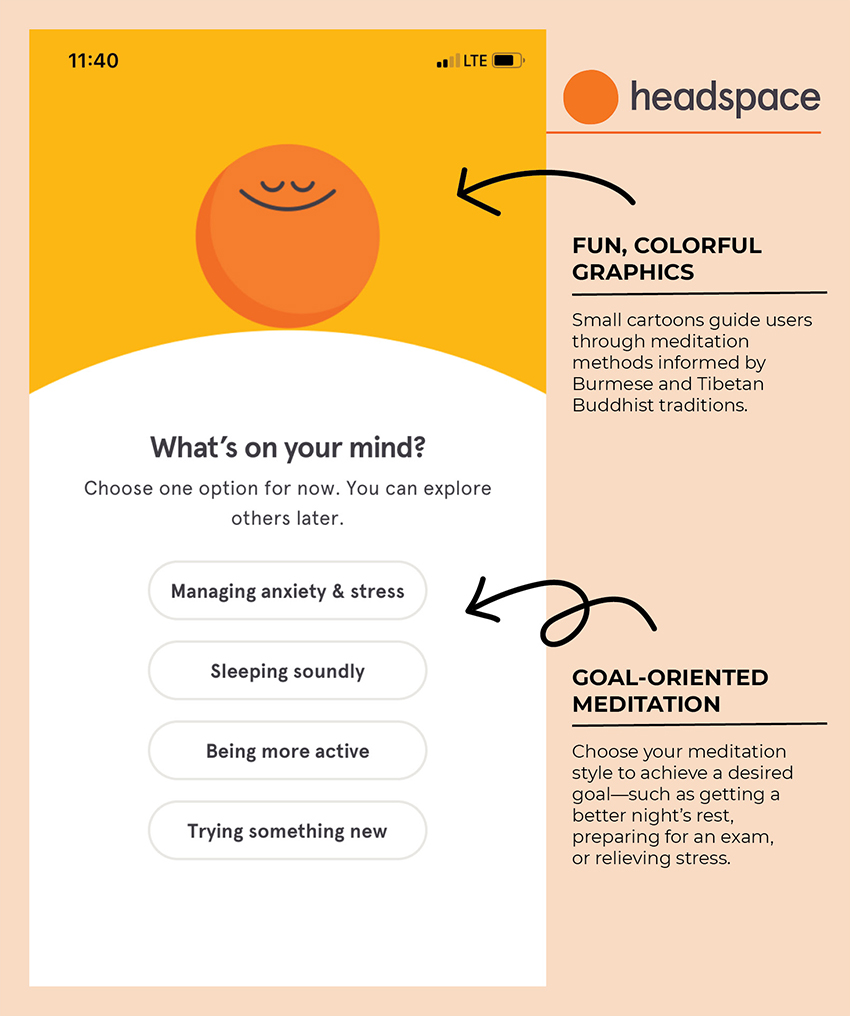
2. The Resilience Builder
Happify wants to help you remove obstacles that reduce, block, or impede your happiness. The app tracks each obstacle — such as overcoming negative thoughts, coping with stress, or increasing self-confidence — through engaging games and activities. These actions range from planning an act of kindness to taking a photograph of something that inspires gratitude. Through these activities and actions, the app helps users develop healthy patterns that assist with building a happier life. “It helps people overcome stress and negative thoughts while building resilience skills,” says Cosgrove. The app's free basic plan includes assessment questions and more than 60 activities and can be downloaded for free from the App Store and Google Play. The paid version, which costs $14.95, offers progress insights and unlimited access to each track. “It allowed me to gain further insight into my positive emotion and life satisfaction through its features that allow me to score on: savor, thank, aspire, give, empathize and revive,” a satisfied reviewer wrote.
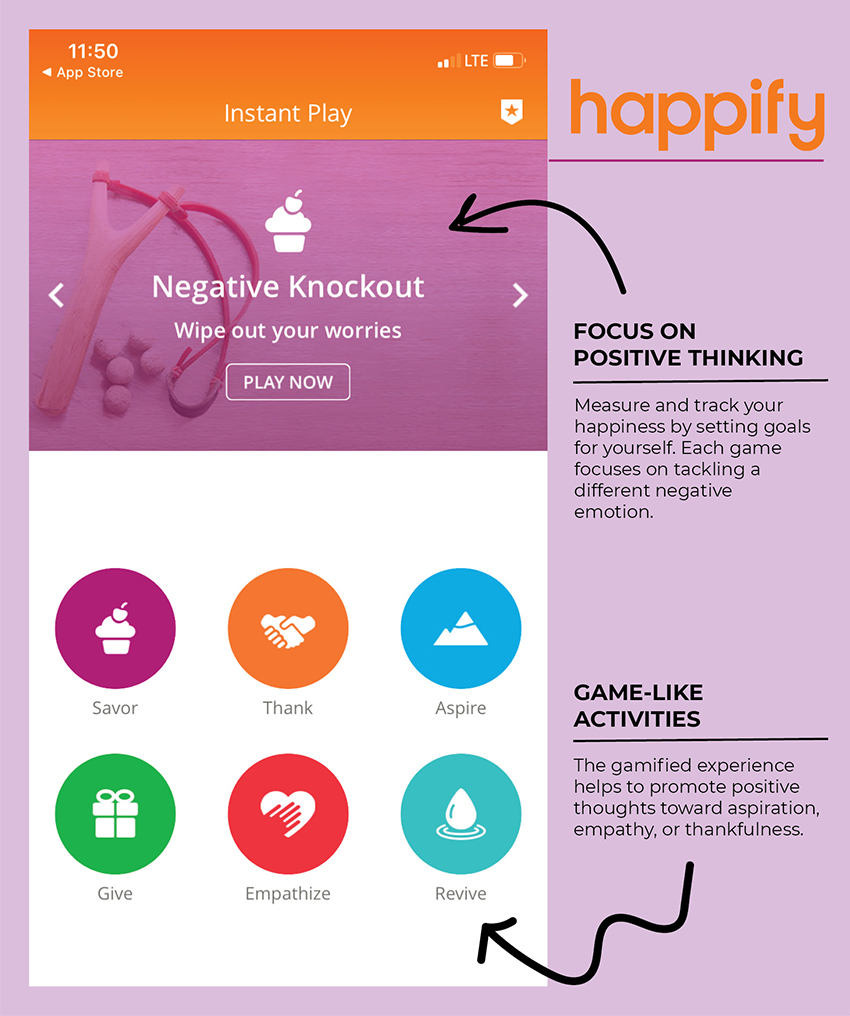
3. The Clinic in Your Phone
With a range of clinically validated techniques such as cognitive-behavioral therapy (CBT), a psychological treatment that helps to change thinking patterns, Sanvello helps users deal with depression, anxiety, and other wellness challenges. With mood tracking, coping tools, and progress assessments, the app provides a variety of ways to manage your mental health. “Sanvello pairs specifically with universities and targets students more, but anyone can download it even if they aren’t a student,” Cosgrove says. Savnvello serves as a handy companion for harried college students with expansive to-do lists by offering a range of easy-to-access coping mechanisms such as CBT and meditation. “I enjoy that everything is based on CBT because it works. It’s easy to use and intuitive, and the only mental-health app I’ve not deleted after trying for a week or two. This has all the tools I wanted in one place, and I appreciate all the work that goes into it from the creators,” says one reviewer. The app is free to download from the App Store and Google Play but offers a $8.99 subscription plan for access to all the available tools.
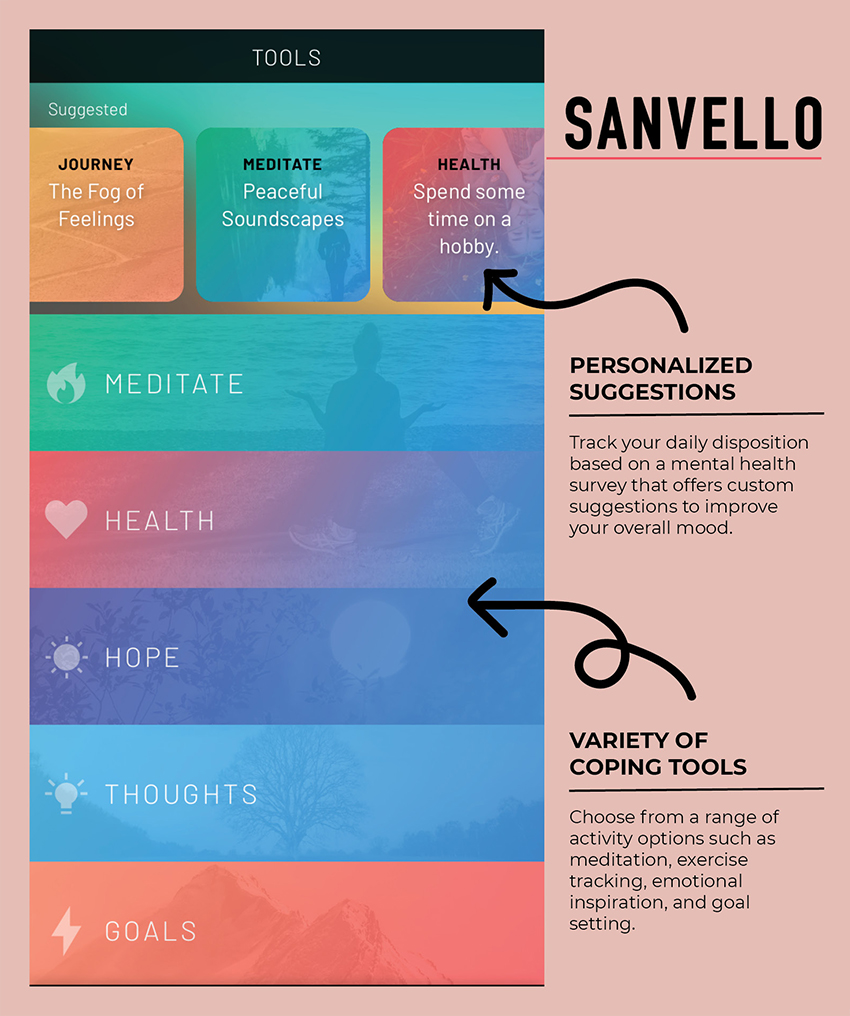
4. Personal Trainer in Your Pocket
Designed for establishing a healthier lifestyle with features such as on-demand exercise plans, nutrient-dense recipes, and one-on-one coaching, Fabulous focuses on healthy choices. “It is particularly helpful for folks who struggle with motivation and sticking to change,” Cosgrove adds. The app is free to download from the App Store and Google Play but for unlimited access to each of the “journey” courses, there is a subscription option for $9.99. The app, “is like having a personal assistant, cheerleader, life coach, and friend all rolled into one on your phone. It starts off small and easy which is perfect for someone who gets overwhelmed easily like me,” says a positive reviewer.
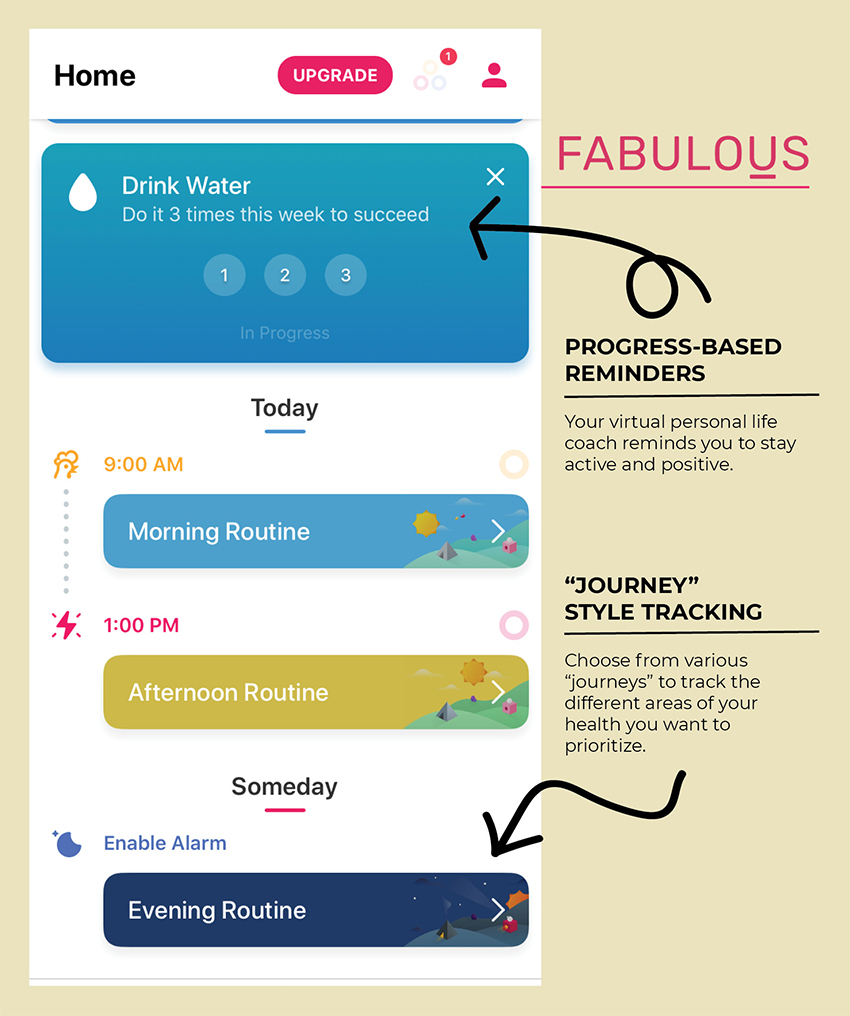
5. The Mood Adjuster
Mental-health apps are, “a good way to be proactive in caring for your mental health and holding yourself accountable,” says Richards. Mood Tools, for example, is designed to combat feelings of depression or anxiety. With a thought diary, mood-tracking activities, and a safety plan to utilize in case of an emergency, this app can help alleviate negative thoughts. “I use this app all the time with my patients,” wrote a reviewer who identified as a clinical psychologist. “It includes the basic principles of CBT, one of the best therapies for depression. The information is clear and practical.” Download the free app on the App Store and Google Play.
